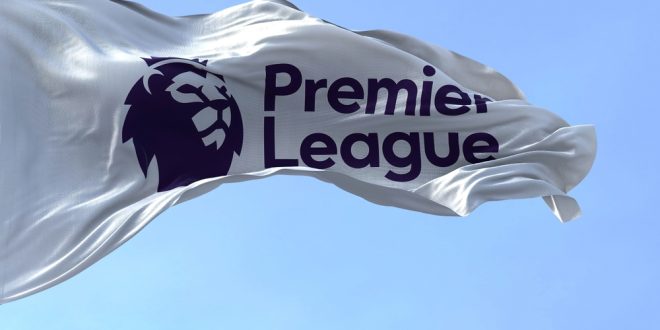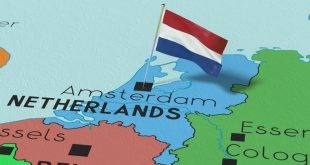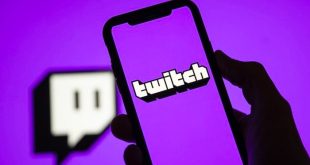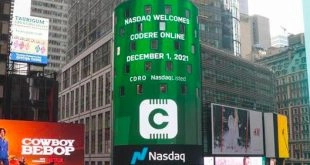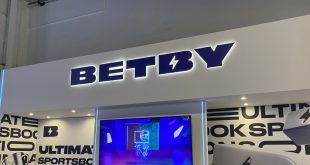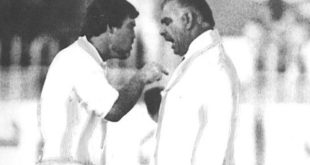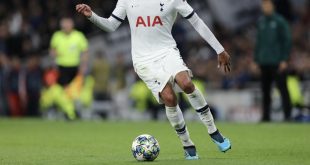The link between gambling companies and football clubs has been vital for financial support and brand exposure over the years.
BetMGM‘s new collaboration with Premier League‘s Tottenham Hotspur is a prime example, set to enhance the operator’s presence as the official training wear partner from the 2024/25 season.
However, against the backdrop of such high-profile deals, the footballing world is on the cusp of a transformative shift. The English top-flight, in a groundbreaking move, has announced plans to ban gambling logos from the front of shirts starting in the 2026/27 season.
Clubs are pursuing sponsorship via different avenues, however, such as training kit deals and sleeve sponsorships. To gain deeper insights into the implications of these developments, as well as discuss what fans can expect to see in the coming years, SBC News sat down with George Harborne, Sponsorship Director of SBC.
SBC News: How significant has the role of gambling sponsorships been in football, in terms of providing financial support to clubs and increasing brand exposure for betting operators?
George Harborne: Football, along with all sports, and sport betting are intrinsically linked with the sport being the object of the betting. The financial link between the sports organisations and betting operators through sponsorship is a hugely important one for operators, increasing brand trust, providing a route for player acquisition and retention and creating visibility.
Similarly, the industry has been hugely important to sports organisations by generating much needed revenue from which sports can utilise these funds to grow, with the industry often paying a premium for rights compared to brands outside the industry due to the competition between operators to be seen in the sports.
The role sponsorships have played in achieving these objectives for both sides of a partnership has been significant.
SBC: Considering that training kit sponsorships still offer significant exposure, do you foresee other Premier League clubs following Tottenham Hotspur’s lead in placing a betting partner on their training kit?
GH: We have seen training kit partnerships for a number of years now, including an increase in these deals from the gambling industry.
With Premier League sides opting to remove main partner location branding as an opportunity for gambling operators in the coming seasons, I think it is inevitable that we will see more brands make the move to the kit sleeves or training kits as an alternative asset for exposure.
SBC: Has the value of training kit sponsorships grown as clubs have increased their coverage across various social medias and provided more access to their players’ daily activities?
GH: Clubs are increasingly more aware that securing a partner on an asset like training wear only carries value if they are seen.
Social media provides a fantastic platform to share non-matchday content of players training or being interviewed, which is clearly when the squad are most likely to be wearing training wear with the brands on display.
I think clubs will naturally want to deliver value for their partners, but in terms of fees being paid for these rights, I think the bigger bump will come from main partner locations no longer being an option on kits.
The competition for secondary brand positions on sleeves and training kit could intensify because of this, and thus driving up the cost for the acquisition of these rights.
SBC: As mentioned above, training kits still offer significant exposure, but do you think there may be an increase in training kit related activations, and what could these be?
GH: Naturally brands who acquire training kit rights will want to activate the partnerships with players wearing the training kit. With that, I think we will continue to see an uplift in ‘behind the scenes’ content and training ground based activations that can maximise the opportunity for training kit partners.
I think the Football Association does a particularly good job in creating this type of content for EE given that there are no on kit assets that they sell, and should be looked at as a bit of a leader in the space for this type of content – especially given the limited contact time the FA has with players during call up windows.
SBC: The voluntary ban is still two years away, but for the most part clubs are avoiding front-of-shirt deals. Are teams potentially missing out on a potential cash grab, or is it a sensible approach to make preparations?
GH: I’m not sure we are seeing clubs avoid these deals. Aston Villa has just announced a new partnership for the front-of-shirt with Betano and I think other clubs will also announce new deals this summer ahead of next season.
There is a harsh commercial reality that often there is a large financial drop off between taking on a partner from the gambling industry or from outside it. If maximising commercial gains are the priority, which for most clubs it will be, then we will continue to see more of these main partner deals until the ban takes effect.
SBC: How do you think the relationship between sports clubs and gambling operators will evolve in light of the ban on gambling logos on matchday shirts? Is this Spurs deal proving there is still room for collaboration between the sectors?
GH: I think we will see an increasing number of deals focusing on sleeve and training kit assets, alongside the deals we already see that incorporate pitch side LED and stadium branding that feature within the TV camera arc.
SBC: Has the voluntary ban placed a heavier emphasis on responsibility as part of the club-bookmaker commercial relationship?
GH: In the UK we have got some operators that have taken on player protection and responsible gambling messaging very seriously for a number of years now and I expect that to continue.
The unique thing about the Premier League is that whilst it is an English league, it has a global audience. I and with that it is often the case that many of the operators that feature in the Premier League are actually targeting overseas markets rather than the domestic UK market.
The unique thing about the Premier League is that whilst it is an English league, it has a global audience. It is often the case that many of the operators that feature in the Premier League are actually targeting overseas markets rather than the domestic UK market.
This means that whilst brands focused on the domestic market work hard to create responsible activations and lead with responsible messaging, the same political pressure or need may not apply to operators focused overseas. I don’t see this divergence changing as a result of the impending ban on front-of-shirt branding.
